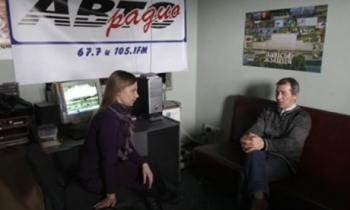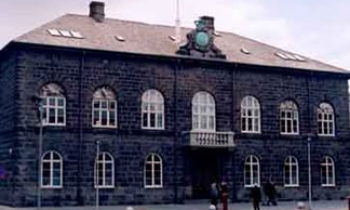Colombian President Alvaro Uribe has come in for trenchant criticism from press freedom organisations for endangering the life of an editor by accusing him of harbouring links with the militant Revolutionary Armed Forces of Colombia (FARC).

President Uribe’s comments in an interview on Caracol Radio on February 23, accusing Carlos Lozano, editor of the communist weekly Voz, of links with the guerrillas of FARC, were condemned Wednesday by Reporters sans Frontières (RSF), which said they had endangered Lozano.
“Does having communist sympathies make you an ally of FARC?” RSF asked. “President Uribe seems to forget that Lozano was once appointed by the government as peace mediator with the guerrillas. This is not the first time Uribe has lost his temper with journalists who do not support him. This kind of remark is dangerous as it exposes the press to reprisals.”
The International Federation of Journalists (IFJ) said the President’s attack on Lozano was reckless and put the journalist’s life at risk from reprisals by extremists. “There is no foundation for these accusations and none is provided by President Uribe,” said Aidan White, IFJ General Secretary, in a letter to the Colombian ambassador to Belgium. “This is a cynical attempt to intimidate and silence a vocal and eloquent critic of the President’s administration and as such constitutes a serious violation of press freedom.”
Uribe called Lozano an “accomplice and spokesman” of FARC. Lozano responded several times during the first week of March, saying he would hold Uribe responsible if anything happened to him. “The president’s comments are slanderous and reckless, and put my life and safety in danger,” he said. He said he was no longer in regular contact with the FARC high command, but he was in written contact with guerrillas, “as many journalists are, but all this is known by the government.”
IFJ said the attack by President Uribe “is a potentially reckless and life-threatening attempt to stifle public debate about the actions of the Colombian government” and added to concerns about Lozano’s safety, a journalist who has already death threats. IFJ also noted that Uribe has in the past made similar accusations against his critics, some of whom are distinguished campaigners for human rights of international reputation.
Uribe’s comments have surprised the Colombian media, especially as Lozano was once used by the government as an emissary with the guerrillas, as former peace mediator Camilo Gómez pointed out. Lozano said: “I do not understand. If I am a criminal, why do government aides come looking for me to establish contacts with FARC?”
Ramiro Bejarano, a former director of the military intelligence agency known as the Security Administration Department (DAS), told journalists, “Alvaro Uribe is trying to stigmatise all government opponents as criminals in order to cover up his own complicity with the paramilitary groups.” Some of Uribe’s associates are currently being prosecuted because of their ties with paramilitaries.
Lozano received death threats in 2005, at a time when Uribe was reacting harshly to criticism from journalists such as Hollman Morris of the public TV station Canal Uno about his policies towards the armed conflict.
IFJ General Secretary White met Lozano and officials of the National Union of Journalists in the UK and Ireland in London recently and discussed efforts to strengthen professionalism and solidarity within Colombian journalism – something IFJ says is urgently needed given the continuing pressure being felt across the country by media professionals at all levels.









